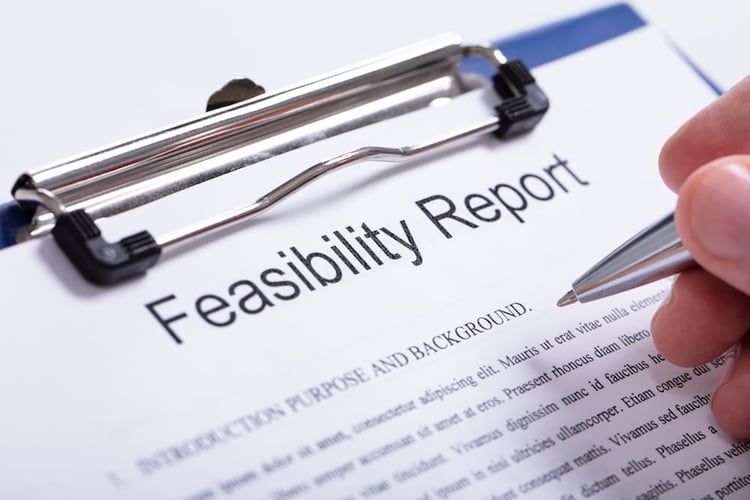Buying a self storage facility can be a profitable investment, but it requires careful consideration and planning. With the right knowledge and resources, you can make informed decisions about the best way to go about purchasing your own storage facility and then managing it.
In this guide, we will discuss the main steps involved in buying a self storage facility — from researching potential locations to negotiating with sellers and closing on the sale. Whether you’re a business owner who is just starting out or are looking for ways to expand your portfolio of storage space, this guide has what you need to know about how to buy a self storage facility.
How Profitable is Owning a Self Storage Facility?
Before diving into the details of buying a self storage facility, it's important to understand the potential profitability of a storage business. While there is no guaranteed return on investment (ROI), owning a self storage facility can be highly lucrative if managed correctly. On average, you can expect to see a profit margin of 41% on your self storage investment.
The cost of managing your self storage facility will depend on your exact business model and expenses. For example, it may be more costly to offer climate-controlled units, but you can also charge more for a climate-controlled storage unit. Additionally, payroll costs can be reduced with remote management and smart technologies.
How To Buy a Self Storage Facility
Conduct Market Assessment
Before you start looking for a self storage facility to buy (similar to building new self storage units), it’s important to conduct market assessments and research. You want to ensure that there is enough demand to absorb additional supply.
Analyze trends related to local industrial growth, population growth, and housing markets. Also, look into the competition in the area and determine if there is enough demand to drive up rental rates and sustain your own facility.
Another important consideration is future competition. There could be new facilities in various stages of development, all of which could impact your business in the near or long term, depending upon:
- When they open for business
- Their net rentable square footage
- The number of units and sizes
- Product types (climate-controlled vs. non-climate controlled, drive-up units vs. indoor units, multi-story or ground level, specialty storage for wine or vehicles, etc.)

Research Existing Facilities to Compare Prices
Once you’ve conducted your market research, start looking for potential properties. You can use an online search engine or a real estate agent to help narrow down your choices. If you're in a small town, your options may be more limited, but options can be limited in urban areas, too. If you’re struggling, you may need to get creative and look at converting an empty big box store, factory, or warehouse building into storage.
Consider factors such as size, location, and pricing of storage units when evaluating potential facilities. It’s also important to look into any zoning or neighborhood restrictions that may impact your ability to operate a storage facility.
People may be resistant to self storage, but it is a relatively quiet business compared to other business types, with less noise and less traffic. In the event of a conversion, you may need to hold community meetings to discuss concerns with residents and planning committees.
Understanding Feasibility Studies
Once you’ve found a property that meets your criteria, it’s time to hire an unbiased third party to conduct feasibility studies. Many banks require that the study be completed by someone other than the investor or his/her affiliates. If you’re purchasing an existing self storage facility, then you may not need to conduct this, but these are especially important for conversions.

A feasibility study will help determine the viability of the project by analyzing a variety of factors such as rental rates, occupancy rate potential, operational costs, and capital expenses. The goal is to ensure that the facility will be profitable enough for you to repay loans and be profitable.
Learn the Legal Requirements
Before you move forward with the purchase of your self storage business, make sure you understand all of the legal requirements.
Depending on your state or local government, there may be specific regulations related to self storage facilities that must be followed. There could be hefty fees for changing the zoning and those could make the project cost prohibitive.
It’s also important to understand any taxes and fees associated with the purchase and operation of a facility.
Determine How Much Capital Is Needed
You’ll need to have a solid understanding of your capital requirements before you start negotiating with the seller. Calculate how much money you will need for closing costs and any other expenses associated with buying the facility. This includes capital improvements, mortgage payments, insurance premiums, and taxes that may be due upon purchase.
You can also hire an experienced broker who has done self-storage deals to handle this for you. It is money well spent!

Find Financing Options That Work Best for You
Once you’ve determined your capital requirements, it’s time to look for financing options that work best for you. Depending on your situation, there may be a variety of different types of loans or other financing options available. You can also use an SBA or hard money loan if you don’t qualify for traditional mortgages.
Negotiate with Sellers
Once you’ve identified a potential facility, it’s time to negotiate the purchase price. Make sure that both parties agree on a fair and reasonable deal before signing any contracts. You can use tools such as market research and legal documents to help ensure that the terms of the sale are fair and accurate. An experienced broker can also help you here and make this process easier.
Ensure All Contracts Are Legally Binding
Once you’ve negotiated the terms of the sale, ensure that all contracts are legally binding and in compliance with local regulations. You can also use an escrow company to provide assurance that all funds will be held securely until the closing date.
When handling contracts and preparing to close, self storage brokers make the process easier for buyers and sellers. They will have checklists of the necessary paperwork and ensure due diligence is done beforehand.

Close on the Sale
Once you have agreed upon a purchase price, you’re ready to close on the sale. Be sure to pay attention to important details such as closing costs and any required repairs or upgrades to the facility. Make sure all paperwork is filed correctly before completing the sale.
Create an Operational Plan
An operational plan will help you understand how you plan to manage and maintain the facility in order to maximize profits. A self storage facility operating plan should include detailed plans for managing and maintaining the facility to ensure it remains profitable.
This includes developing strategies for pricing, staffing, marketing, customer service, security measures, and facility maintenance. What you learned from your feasibility study will come in handy as you build your operational plan.
Develop Marketing Strategies
Once you have developed your operational plan for your new facility, it's time to start marketing your facility. Utilize various tools and strategies such as local advertising, digital media campaigns, social media, referral programs, and more. You can also consider joining a self storage association in order to get access to exclusive resources and industry contacts.

Consider Working With a Consultant
If you need additional help or guidance with any of the steps outlined above, it may be beneficial to work with a self storage consultant. A Storelocal consultant can provide valuable advice and assistance in a variety of ways, from market research and financial analysis to operational planning and marketing strategies. Our self storage industry experts are here to help you make the best investment when you're looking to purchase an existing self storage facility.
